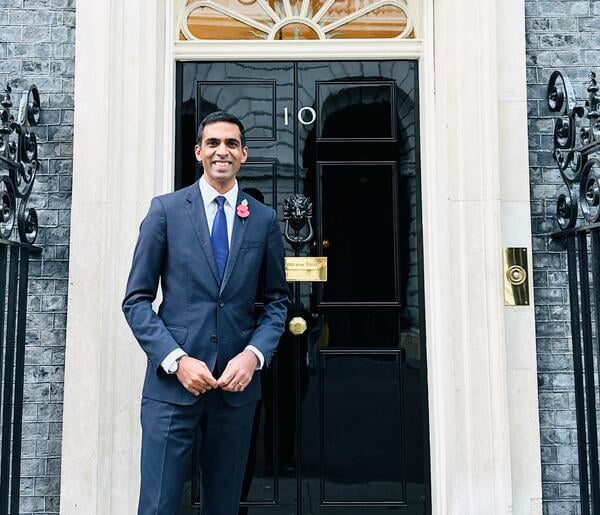You have /5 articles left.
Sign up for a free account or log in.
In the small world where universities and online education companies overlap, Rajay Naik and I know many of the same people. It was through this shared network that I first learned about Rajay and the online learning company he leads, Skilled Education. I asked Rajay if he’d answer my questions about his company and career, and he graciously agreed.

Q: It appears that Skilled Education has decided not to promote many of its partnerships, including with many highly ranked institutions, and instead remain relatively private. For those of leading online initiatives at universities, what should we know about your company? Where does Skilled Education fit into the online program enabler ecosystem? How is Skilled different, and can you give us examples of your university partners?
A: Most of our senior team have worked in global online enablement for over 15 years. After learning about how successful and unsuccessful partnerships have been launched, nurtured and sustained, we decided to establish a company born of the principles we know to be important.
- Fully unbundled: allowing universities to retain control, choose the services they require and build internal capability.
- Serve the entire student journey: including all technology, admissions and tutoring if the university requests it.
- White-labeled in every aspect: ensuring only the university’s brand is visible in all aspects and their global reputation is enhanced.
- Bespoke with everything: from dedicated teams per university to reviewing every nuance of the prospect, applicant and student journey.
- Comprehensive choice of business models: enabling partners to transparently choose from fee-for-service or revenue-share options.
We partner with every size, shape and ranking of institution, including the University of Oxford, University of Hertfordshire, University of Cambridge, UWE Bristol and relatively new partners in the United States. We are also entrusted with major national and international initiatives, such as designing, developing and hosting Help to Grow for the U.K. government, where we white label the program for over 70 university partners. Alongside our high retention, completion rates, student numbers and quality metrics, we are most proud of and focused on retaining our 100 percent partner satisfaction.
Q: You’ve had a long, varied and impactful career in government, universities and the private sector. Can you give us the highlights and learnings? How has your career path prepared you for leading a company that partners with universities to develop their online program portfolios?
A: This is an interesting question. An aspect of the United States I respect greatly is the seamless journeys between universities, the private sector and government. Provided the boundaries are respected, it’s an enormous strength, and I’ve tried to encourage more of it in the U.K.
I was proud to be asked by the prime minister of the day, Gordon Brown, to review the higher education sector and devise a new fees and funding system, and those experiences and networks were invaluable during my five years at the Open University—particularly given the scale and unique role of the institution.
Similarly, that experience was essential to the success we enjoyed when we were establishing and growing Keypath. More recently, my responsibilities as chairman of the Commission on Lifelong Learning have helped me to ensure Skilled best serves the ambitions and challenges of working adults studying online. I’m not sure where my role at my beloved Coventry City FC fits in, but I’m sure we could come up with a tenuous link!
My two biggest learnings have been both foreseeable and heartwarming. First, people and culture are everything. In any team, organization or country, a powerful sense of mission and momentum are crucial to delivering positive impact. Second, wherever possible, collaborate, don’t compete. There are other online enabling companies in our industry who deliver great outcomes for learners and benefits for universities. I am proud that Skilled has excellent relationships with most of these companies, and there is plenty of space for all of us. Across our respective silos, we all have the same goal—a happy, healthier and better educated world. We should regard ourselves as an ecosystem or symphony—each playing our distinctive role to create something exceptional.
Q: This is a challenging time for U.S. higher education. How might institutions of higher education leverage online learning to build financial resiliency? In an online market that is growing ever more crowded, how can colleges and universities differentiate their offerings?
A: Regarding your first question, the burgeoning wealth in high-growth economies (primarily the Global South) means there is a growing pool of learners seeking online learning—and, crucially, millions more people with the English language proficiency, capital and desire to study with U.S. and U.K. brands. These learners are increasingly eager to remain in their high-growth economies, reduce travel and accommodation costs and mitigate visa challenges.
This reality creates an opportunity for U.S. universities to build financial and source market resiliency. Over 80 percent of online students in the United States study with a university within their state, and most institutions only market online programs domestically. From supply-side and demand-side perspectives, there is, therefore, a considerable opportunity for online portfolios to serve global audiences.
Notwithstanding the above, when Skilled is asked to support such endeavors, we always challenge ourselves about why a student would choose this program over others. If we can achieve something highly differentiated on specializations or admissions criteria, in partnership with employers and accreditors, or in our pedagogic approach, then we may collectively choose to launch.
It is important to remember that some of the most successful universities online have not historically had a significant global reputation or operated at the top of rankings. Our universities and partnerships must learn from this—we must design and develop new pedagogical approaches, microtarget marketing and recruitment to clear demographics, and support and teach in ways that celebrate the distinctiveness of our universities and learners.




